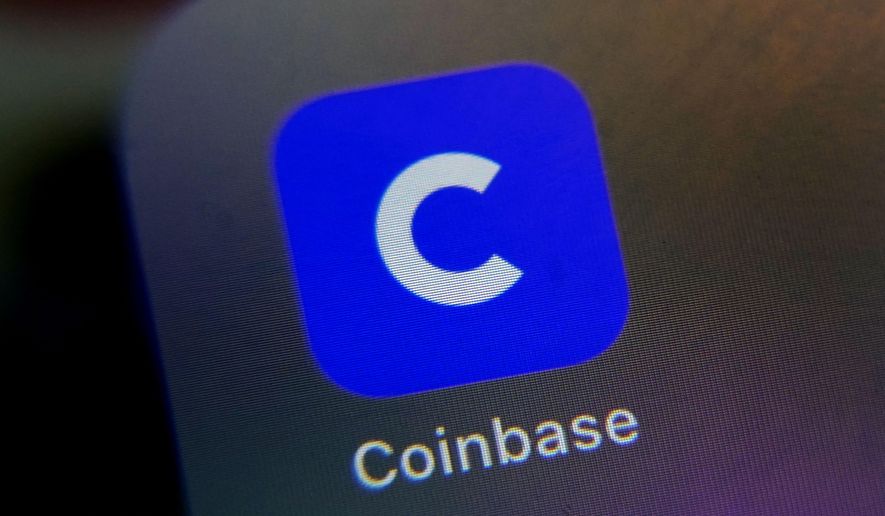The Supreme Court heard arguments Tuesday in lawsuits filed by former users of Coinbase over claims that the cryptocurrency exchange violated California law and for a loss in the crypto market of more than $30,000.
At issue, however, is whether the claims must be settled through arbitration instead of by trial in a district court.
Coinbase’s attorney told the justices that the trial proceedings should be put on hold while an appellate court decides whether a motion to compel arbitration is required to settle the lawsuits under the Federal Arbitration Act, which is silent about whether a court proceeding must be halted.
Neal Kumar Katyal, who represents Coinbase, said allowing a district court to proceed with a trial while the company asks an appeals court to enforce its arbitration agreement would prejudice the company in future proceedings.
“The very right that Congress has authorized for that immediate appeal is being taken away effectively,” Mr. Katyal said Tuesday. “All that toothpaste can’t be put back into the tube.”
The case stems from two cases against Coinbase in the Northern District of California, where the U.S. District Court denied the company’s request to compel arbitration. The federal court also declined to stay lower court proceedings while Coinbase appealed the arbitration decision to the appellate court.
In the first case, Abraham Bielski sued Coinbase after he fell for a scam, having given someone pretending to be a PayPal representative remote control of his computer and losing roughly $31,000 in cryptocurrency. He claims that Coinbase should reimburse him for the loss.
The second claim was brought by former users of the company claiming it violated certain parts of California law when it held a “Dogecoin Sweepstakes” in 2021. The users accuse Coinbase of tricking them into paying hundreds of dollars to enter the contest for a shot at up to $1.2 million in Dogecoin cryptocurrency.
All parties agreed to the User Agreement, which states that “any dispute” would be resolved through arbitration, according to court documents.
Hassan Ali Zavareei, the attorney representing Mr. Bielski, said Congress included particular language about halting lower court proceedings in certain parts of its legislation — but excluded it intentionally in other parts of the law.
“As a practical matter, this means the courts retain their equitable power to use their discretion to issue stays when appropriate,” Mr. Zavareei said, arguing that the district court should have the choice as to when to issue an injunction — “a power that has been vested in this court since the founding of the Republic.”
Justice Neil M. Gorsuch pushed back, noting that a century-old principle suggests that legal disputes should be heard in one court at a time. Allowing a district court and an appellate court to handle a matter simultaneously could be problematic, he said.
“A lower court could potentially undermine an appellate court jurisdiction,” Justice Gorsuch said.
But other justices from the conservative and liberal wings of the court said Congress would have been specific in the statute’s language about whether a district court must halt proceedings.
Justice Elena Kagan said the district court could proceed with trial on the merits of the claims while the appellate court deals strictly with the issue of arbitration.
“The two can go their merry way coincident with each other,” Justice Kagan said.
Chief Justice John G. Roberts Jr. said that Coinbase could ask the district court to delay a trial date while the appeals court decides the issue of arbitration — or could also request that the appellate court expedite its review.
“There are a lot of different ways to manage the problem you confront rather than claiming entitlement by permitting something that isn’t granted by the statute,” Chief Justice Roberts told Mr. Katyal.
The case is Coinbase v. Bielski. A decision is expected by the end of June.
• Alex Swoyer can be reached at aswoyer@washingtontimes.com.




Please read our comment policy before commenting.